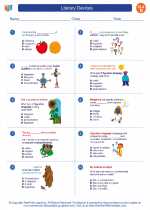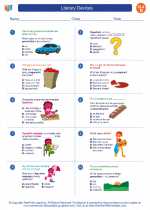Comedy: An Overview
Comedy is a genre of literature, film, and other forms of entertainment that is characterized by its humor and light-hearted tone. It often aims to entertain and amuse the audience, using various comedic devices such as wit, irony, and exaggeration.
Types of Comedy:
- Sitcoms: These are television shows that feature a recurring cast of characters in humorous situations. Examples include "Friends," "The Office," and "Parks and Recreation."
- Stand-up Comedy: This form of comedy involves a comedian performing in front of a live audience, delivering jokes, anecdotes, and humorous observations.
- Farce: Farce is a type of comedy that relies on exaggerated and improbable situations, physical humor, and absurdity to create laughter.
- Satire: Satire uses humor, irony, and exaggeration to criticize and ridicule societal issues, politics, and human behavior.
- Parody: Parody is a form of comedic imitation that mocks or exaggerates the style of a particular work, artist, or genre for comedic effect.
Characteristics of Comedy:
- Humor: Comedy is centered around making people laugh, often through witty dialogue, amusing situations, or clever wordplay.
- Happy Endings: Most comedies conclude with a positive resolution, often involving reconciliation, romance, or a humorous twist.
- Exaggeration: Comedies often feature exaggerated characters, situations, or reactions for comedic effect.
- Timing: Timing is crucial in comedy, as the delivery of jokes and punchlines relies on precise timing to maximize their comedic impact.
Study Guide:
As you study comedy, consider the following questions:
- What comedic devices are commonly used in sitcoms to generate laughter?
- How does stand-up comedy differ from other forms of comedic entertainment?
- Choose a well-known comedic film or play and analyze the use of humor and exaggeration within it.
- Research the historical significance of comedy and its role in society.
- Compare and contrast the characteristics of comedy with those of other literary genres, such as tragedy.
By exploring these questions and delving into the various types and characteristics of comedy, you will gain a deeper understanding of this entertaining and influential genre.
.◂English Language Arts Worksheets and Study Guides Fourth Grade. Literary Devices
Worksheet/Answer key Literary Devices
Literary Devices  Worksheet/Answer key
Worksheet/Answer key Literary Devices
Literary Devices  Worksheet/Answer key
Worksheet/Answer key Literary Devices
Literary Devices 

 Worksheet/Answer key
Worksheet/Answer key
 Worksheet/Answer key
Worksheet/Answer key

The resources above cover the following skills:
Students apply knowledge of language structure, language conventions (e.g., spelling and punctuation), media techniques, figurative language, and genre to create, critique, and discuss print and nonprint texts. (NCTE)